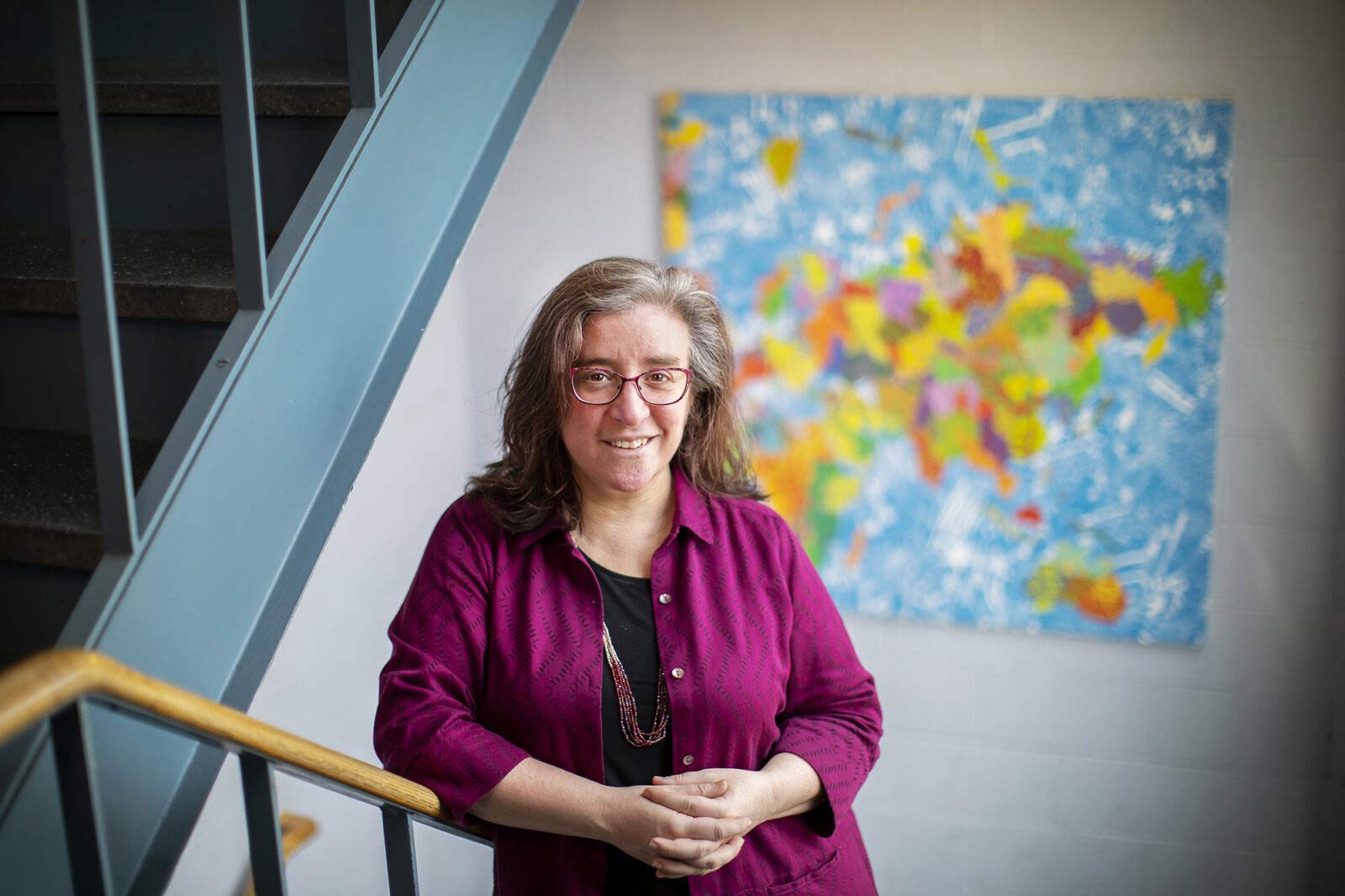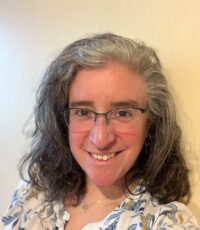News Details
Working on ‘the Human Side’ of Heritable Cancers

Authored by: Kristina García
Photography by: Eric Sucar / Penn Today
Faculty & Research, Alumni
03/04/20
“I love working with people,” says Allison Werner-Lin of the School of Social Policy & Practice (SP2). Werner-Lin’s office overlooking Locust Walk is homey and lamp-lit, with student gifts sharing space with scholarly tomes. This is just one of her workspaces, however. Recently returned from sabbatical, Werner-Lin has been working with the National Cancer Institute (NCI), as well as out of her home in upstate New York, which doubles as a private practice for families seeking bereavement therapy. The divide between academia and clinical practice suits her. “I feel like I have one foot in each world and in a very positive way,” Werner-Lin says.
Werner-Lin has extensive clinical and research experience and uses both to inform her work, which centers on heritable cancers. She began her academic work studying young adults with mutations in genes associated with breast and ovarian cancer, BRCA1 and BRCA2. Recently, her work with the NCI has branched out to the study of Li-Fraumeni syndrome (LFS). Patients with LFS have a mutation in a tumor-suppression gene, resulting in a high incidence of cancer starting in childhood, and 50% of LFS patients develop cancer by age 40. Both patient populations make life-altering decisions based upon their family histories and medical diagnoses.
“Dr. Werner-Lin’s groundbreaking research merges science with social work at the intersection of qualitative health research, the structure and evolution of genes, hereditary cancer, and how it impacts individuals and families at various stages of life,” says SP2 Dean Sara “Sally” Bachman. “Each day, Allison is pushing the frontiers of genomic study and oncological social work while also mentoring other social change agents who will undoubtedly make a difference locally, nationally, and internationally.”
For more than a decade, Werner-Lin has worked in the Clinical Genetics Branch of the Division of Cancer Epidemiology and Genetics of the NCI organizing “the human side” of research. Patients come annually to the NCI to receive full-body MRI cancer screenings and participate in data collection that covers everything from cancer history to family communication to risk management. Werner-Lin mentors an interdisciplinary team of predoctoral and postdoctoral fellows to explore how these families understand and cope with genetic information. Her work is used to train providers in delivering holistic medical and psychological care.
“We talk with families about their experiences communicating cancer-risk information with loved ones, making reproductive decisions, and managing the endless cycle of screening,” Werner-Lin says. She has seen patterns in how families share cancer-risk information and seek support, noting that information travels based on relationship patterns and emotional closeness, not necessarily degree of risk.
People with LFS have limited options for cancer prevention, and expectations for a cancer diagnosis and early death are common. “We’re seeing a lot of physical loss, where amputations and other changes in physical function are common consequences of treatment.”
Many of the people Werner-Lin speaks with are looking at different pathways to parenthood or are choosing not to have children at all,” she says. “Grief becomes a chronic part of their lives, and those kinds of sustained of losses can connect individuals in and across families.”
Former SP2 graduate student Catherine Wilsnack is a Cancer Research Training Award Fellow at the NCI, doing qualitative research as part of Werner-Lin’s team. Wilsnack first met Werner-Lin while in her second year at SP2 and calls the encounter “transformative.” Werner-Lin is a “phenomenal mentor in every way,” says Wilsnack, who earned her master’s in social work (MSW) in 2019. “She always goes above and beyond for her students. I would not be where I am today if it were not for her and her guidance, so I just feel extremely lucky.”
